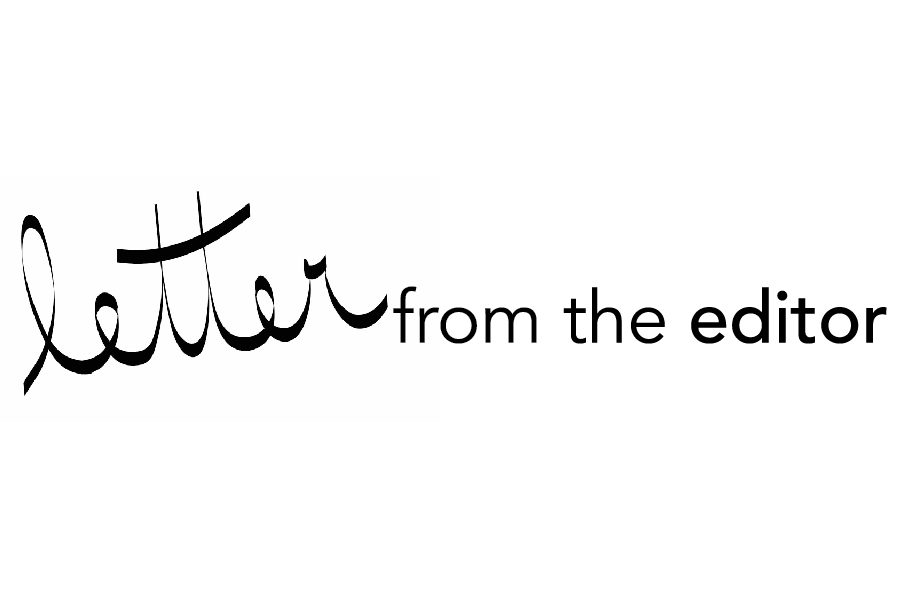Letter from the Editor: Reporting to you from the basement of the LBC, for the 114th year
As the fall semester commences, classes kick off and campus comes alive, The Tulane Hullabaloo has already been diligently at work down in the basement of the Lavin-Bernick Center for University Life.
In the weeks leading up to the beginning of classes, our board of 31 members has gone through extensive training to tackle the daunting task of telling the stories of the Tulane community for the 114th year.
It is no secret that journalism as a profession is one of adaptation. We journalists seek to not only tell your stories, but also to find ways of reaching our audiences through the most effective means. This need to adapt, to change, to redefine how we as storytellers can best serve our communities characterizes our goals as an organization for the coming year.
Our primary concerns as a publication are the same two that boardrooms of media executives across the country are racking their brains to find solutions to: reaching a digital first, 21st-century audience and attempting to dismantle racism within our newsrooms.
In its 113-year-long history, The Tulane Hullabaloo has typically prioritized its print product first. Though we have made strides in the past to update our website and better integrate digital methods of storytelling into our reporting process, we acknowledge we have fallen flat in our social media engagement and in our attempts to best utilize all means of storytelling on our website.
It is for this reason that we have intentionally added the position of Social Media Editor and redefined the position of Digital Editor to best tackle the need to truly be a digital-first publication.
In addition to improving how we tell tell stories, the issue of representation in our newsroom has forced us to consider what stories we tell at all.
With news organizations like Teen Vogue and National Geographic rapidly changing the way they report to better represent marginalized communities, the issue of racism in the newsroom is something the entire industry is rushing to respond to.
The Tulane Hullabaloo has made attempts in the recent past to acknowledge our own history of problematic and, at times, racist coverage. Nearly two years ago, Intersections was introduced as a response to a need for marginalized voices to be heard in The Tulane Hullabaloo. For too long, people of color, queer folks and other historically targeted communities found themselves with little to no space dedicated to their stories in our print pages and on our website. In addition to reporting on marginalized communities, we have made it a concerted effort to intentionally recruit from communities who have been historically excluded from our predominantly white, cisgender, straight and able-bodied newsroom.
We recognize, however, that when it comes to actively combatting systems of oppression like racism, transphobia and sexism, representation is not enough. We, the 114th board of The Tulane Hullabaloo, want to go beyond the hyper-visibility of marginalized voices in our newsroom.
In an effort to do so, The Tulane Hullabaloo is officially dedicating itself to anti-racism and actively striving to become an anti-racist organization on campus.
What we recognize, however, is that anti-racism is a verb, not an adjective. To merely declare ourselves an anti-racist organization without changing our practices and procedures, without holding ourselves accountable to communities we have harmed in the past and without challenging the internal structure of our organization is not enough.
It is for these reasons that in the coming year we are making a concerted effort to live up to our mission statement. A training on white supremacy in the workplace is now mandatory for members of our board and will be for the foreseeable future. Though this is only a small step in the right direction, it is the first of many initiatives we plan on implementing to truly uphold our promise.
As we continue to work to be the eyes and ears of the Tulane community, we hope you will continue to tell us your stories, to engage with us and to hold us accountable.
Leave a Comment
Your donation will support the student journalists of Tulane University. Your contribution will allow us to purchase equipment and cover our annual website hosting costs.




This is ridiculous • Aug 31, 2018 at 9:42 pm
Lopez, you cannot use the damn newspaper to advance your leftist views and support your stupid SOAR club. If you were truly anti-racist, you wouldn’t hate white people and treat them so terrible. Honestly, you’re just as racist as the people you claim to fight against, you’re just pointing it in the opposite direction. Open your eyes and see that people like you aren’t part of the solution, only fueling the war.
sonali • Sep 5, 2018 at 10:33 pm
hey there!! you seem pretty uneducated on racism if you think that you can be racist toward white people. racism is based on a system of oppression and the oppressed (minorities) cannot oppress the oppress (white people). i could get more into it but it seems you have a pretty basic knowledge of anti-racist efforts so i wanted to lay it out for you as plain and simple as possible. so actually, people like canela aren’t “fueling a war” people like you that perpetuate racist and defensive rhetoric against those working to DISMANTLE systems of oppression for people are “fueling a war”. if you’d like some more info on this, i’d suggest reading some crenshaw or maybe taking a sociology class instead of attacking people making real change on campus. have a lovely semester!!
white person • Sep 5, 2018 at 10:35 pm
Maybe ask yourself why you feel attacked by anti-racist organizing – could help you find an real solution.